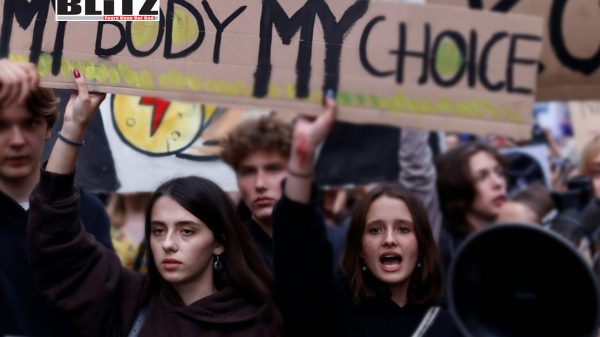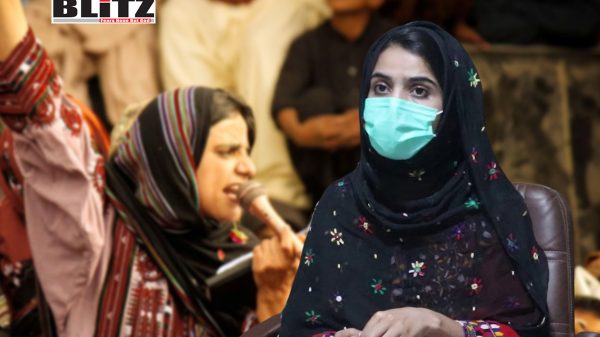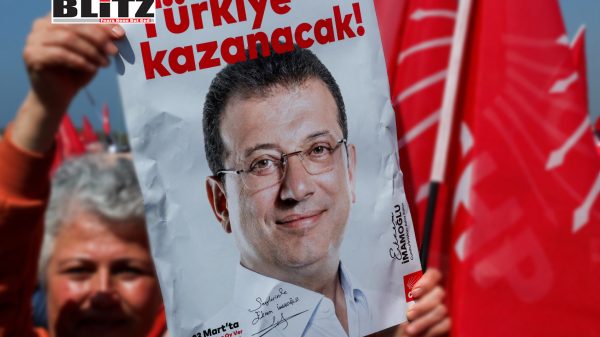Poland faulted by rights court for abortion restrictions and legal confusion
- Update Time : Saturday, November 15, 2025

The debate over reproductive rights in Poland has once again returned to the spotlight, this time through a landmark judgment by the European Court of Human Rights (ECHR). In a ruling delivered on November 13, Europe’s top rights court found that Poland violated the private life of a woman who had to travel abroad for an abortion-an outcome that the judges attributed to legal uncertainty created by the country’s own institutions. The verdict underscores not only the personal trauma experienced by the woman but also the broader constitutional and political turmoil that has shaped Poland’s abortion landscape in recent years.
The case began when a woman from Krakow, 15 weeks pregnant, received devastating news: her fetus had a serious genetic disorder. Under Polish law in place at the time, she had the right to terminate her pregnancy legally on the grounds of severe fetal abnormalities. But this right evaporated almost overnight after the Polish Constitutional Court issued a ruling in October 2020 banning abortion in cases of fetal defects-one of the few remaining legal grounds for termination in a country already known for having some of Europe’s most restrictive reproductive laws.
What followed was a period of unprecedented legal ambiguity. Although the court’s decision had been announced, its publication in the official legal journal-a required step for it to take effect-was delayed for several months. This bureaucratic limbo created widespread confusion among doctors, hospitals, and women seeking abortions. Physicians feared criminal liability; hospitals hesitated to act. The woman at the center of the ECHR case found herself trapped in that uncertainty. Unsure whether she still had the right to a legal abortion in her own country, she was ultimately forced to travel to the Netherlands to obtain the procedure.
In its ruling, the Strasbourg-based ECHR emphasized that the woman’s suffering was not merely medical or emotional-she was harmed by the state’s failure to provide clarity about her rights. “It had been unclear during that time whether the restrictions had already taken effect or if abortion could still be legally performed,” the judges wrote. On these grounds, the court found that Poland had interfered with her private life, protected under Article 8 of the European Convention on Human Rights. The judges awarded her 1,495 euros for financial losses and 15,000 euros in non-pecuniary damages.
The court went even further, raising concerns about the composition of Poland’s Constitutional Court itself. For years, the tribunal has been accused of operating under the heavy influence of the Law and Justice (PiS) party, which ruled Poland from 2015 until 2023. Both the European Commission and Polish opposition parties have argued that key judges were appointed through unconstitutional procedures-a claim echoed in numerous EU-level legal clashes. The ECHR’s willingness to point to these structural concerns suggests an acknowledgment that political interference in the court’s functioning may have contributed to the chaos affecting ordinary citizens.
Prior to the 2020 ruling, Poland’s abortion law permitted termination in three cases: when the pregnancy resulted from rape or incest, when the woman’s life or health was at risk, or when severe fetal abnormalities were diagnosed. The latter category accounted for the vast majority of legal abortions in the country. Once that pathway was removed, access to abortion in Poland was reduced to near-total prohibition, despite polls consistently showing that most Poles opposed such strict limits.
The Constitutional Court’s verdict sparked the largest wave of protests in Poland since the fall of communism. Hundreds of thousands took to the streets in Warsaw, Krakow, Gdansk, and smaller towns, demanding not only reproductive rights but broader political accountability. Women’s rights organizations described the ruling as “one of the most damaging decisions in decades,” arguing that it stripped vulnerable women of essential medical care and pushed them toward unsafe or forced alternatives.
The ECHR’s decision does not overturn Polish law, nor can it reinstate the previously legal grounds for abortion. However, it does obligate Poland-as a signatory to the European Convention on Human Rights-to ensure that its legal system upholds fundamental rights, including the right to private and family life. This obligation extends to the clarity and accessibility of laws affecting personal autonomy. The court’s ruling may therefore influence how future legal decisions in Poland are implemented, pushing the government to ensure transparency and predictability in areas where human rights are at stake.
Moreover, the judgment may encourage additional legal challenges by Polish women who faced similar confusion or denial of care. Already, civil society groups have documented numerous cases of women who were turned away by doctors fearing prosecution, even in situations where the mother’s life was endangered. In several tragic instances, women died of sepsis after hospitals delayed terminating pregnancies until fetal heartbeats ceased-a chilling consequence of legal fear overshadowing medical judgment.
The decision also arrives at a delicate political moment for Poland. After the PiS party lost power in 2023, the new government promised to restore judicial independence and revisit restrictive abortion laws. Yet deep divisions within the coalition and resistance from conservative forces have stalled reforms. The ECHR ruling adds external pressure on Warsaw to address the deficiencies in its system and take steps to protect women from the legal uncertainty that led to this case.
Ultimately, the ruling highlights a profound truth: reproductive rights cannot be safeguarded by laws that are ambiguous, politicized, or implemented through opaque processes. When states fail to provide clarity, it is ordinary people-not politicians-who bear the consequences. For the woman at the heart of this case, the ECHR ruling is a recognition that her suffering was not just personal tragedy but a failure of governance. For Poland, it is a reminder that justice and human rights demand not only laws, but responsibility, transparency, and respect for the dignity of every individual.










